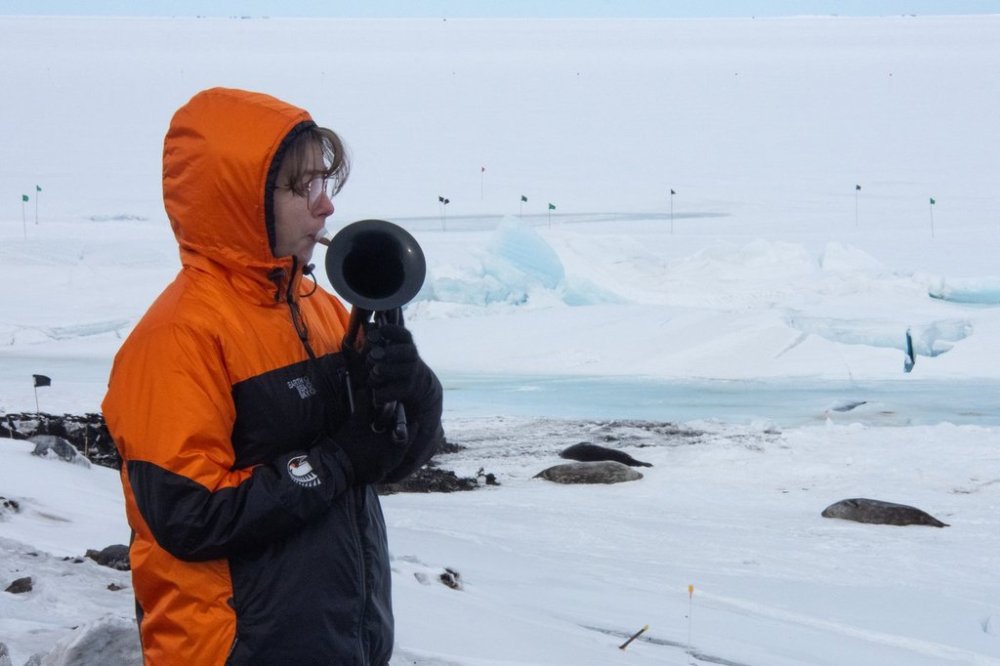On the world’s coldest stage, a military musician plays with a plastic horn and double gloves
Advertisement
Read this article for free:
or
Already have an account? Log in here »
To continue reading, please subscribe:
Monthly Digital Subscription
$0 for the first 4 weeks*
- Enjoy unlimited reading on winnipegfreepress.com
- Read the E-Edition, our digital replica newspaper
- Access News Break, our award-winning app
- Play interactive puzzles
*No charge for 4 weeks then price increases to the regular rate of $19.00 plus GST every four weeks. Offer available to new and qualified returning subscribers only. Cancel any time.
Monthly Digital Subscription
$4.75/week*
- Enjoy unlimited reading on winnipegfreepress.com
- Read the E-Edition, our digital replica newspaper
- Access News Break, our award-winning app
- Play interactive puzzles
*Billed as $19 plus GST every four weeks. Cancel any time.
To continue reading, please subscribe:
Add Free Press access to your Brandon Sun subscription for only an additional
$1 for the first 4 weeks*
*Your next subscription payment will increase by $1.00 and you will be charged $16.99 plus GST for four weeks. After four weeks, your payment will increase to $23.99 plus GST every four weeks.
Read unlimited articles for free today:
or
Already have an account? Log in here »
WELLINGTON, New Zealand (AP) — On the frozen edge of the world, staying in practice as a professional musician takes ingenuity, grit and a plastic instrument for schoolchildren that’s guaranteed not to freeze to your fingers or face.
Natalie Paine is a French horn player in New Zealand’s navy who since October has been among 21 military members stationed in Antarctica. There, her melodies drift across the frozen Ross Sea from perhaps the most remote practice room on Earth.
“It’s beautiful and very inspiring,” Paine told the Associated Press. “I’ll sit there by the window and I will do my routine and play music in my time off, which is not very often.”

An unlikely journey to the ice
The story of how she arrived in Antarctica is an unlikely one. Paine grew up in the hot, dry climate of Adelaide, Australia, where she dreamed of visiting the frozen continent as a scientist.
She studied music at university instead, putting Antarctica out of her mind. Years later however, as a musician in New Zealand’s navy, Paine learned members of the country’s military were stationed in Antarctica to support the work of scientists.
When she asked, her instructor said any military member could win one of the coveted assignments.
“My eyes lit up and I was like, what? Even a musician?” Paine said. “He’s like, heck yeah, why not?”
The most remote practice room on Earth
Her dream was revived but enacting it wasn’t simple. It took four years of unsuccessful applications before Paine landed a posting as a communications operator.
It’s a consuming job, worked in six-day stretches that leave little time for music. Paine monitors radio, phone, email and other communications traffic at New Zealand’s mission at Scott Base, sometimes speaking to people on the ice who haven’t heard other voices for weeks.
In whatever window she can find, Paine squeezes in scales and mouth exercises, going to great lengths not to disturb others on round-the-clock shifts. That means slipping out of the main base to a hut built in 1957 under the leadership of explorer Sir Edmund Hillary as New Zealand established its presence in Antarctica.
While she plays by the window, watching seals on the ice, Paine finds new musical motifs bubbling up.
“There’s so much beauty and it’s not tame either, it’s this wild, untamed beauty of the land around you and the animals as well,” she said. “It’s just so overwhelming, spiritually, emotionally, physically sometimes as well.”
A hostile climate prompts ingenuity
Her practical dilemmas included finding an instrument suitable for Antarctica — something hardy, lighter than a brass French horn and less likely to freeze to her hands. The winner, called a jHorn, isn’t elegant.
“It was designed to be a beginner brass instrument for children,” said Paine. “So it was like, super compact, super light plastic, very durable, nowhere near as much maintenance required.”
New Zealand’s navy doesn’t have records of another military musician being posted to Antarctica so Paine, who will be there until March, could be the first. Her presence has delighted Scott Base and she has provided live music for ceremonies, such as the changing of the flag, instead of the usual tunes from a speaker.
“I had to have ski gloves on with double layers and hand warmers on the inside to be able to hold the trumpet and still my fingers were freezing,” she said. Paine is, however, likely one of the few musicians to perform a solo Antarctic concert in minus 21 degrees Celsius (minus 6 Fahrenheit).
She said the collective effort between nations to work together on the frozen content had a familiar theme. It reminded her of music.
“Music is the universal language and it’s something that reminds us that we’re all connected,” she said. “It brings that connection back to home, back to land and back to the people you’re with as well.”

